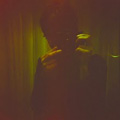You have no items in your cart. Want to get some nice things?
Go shopping Some books are so good, and make such and impression, that they can compel you to search out everything by that writer. I experienced this for the first time about six summers ago. I had bought Richard Yates’ Eleven Kinds of Loneliness on a whim, having never read anything by him before. Over the course of the eleven stories in it I fell in love with the world Yates was writing about. I went out and bought all of his novels that I could find, and read most of them over that summer. There was a certain sense of passion and energy that I experienced from reading his novels back to back, a sense I have subsequently sought after but rarely felt again.
Some books are so good, and make such and impression, that they can compel you to search out everything by that writer. I experienced this for the first time about six summers ago. I had bought Richard Yates’ Eleven Kinds of Loneliness on a whim, having never read anything by him before. Over the course of the eleven stories in it I fell in love with the world Yates was writing about. I went out and bought all of his novels that I could find, and read most of them over that summer. There was a certain sense of passion and energy that I experienced from reading his novels back to back, a sense I have subsequently sought after but rarely felt again.
About a year ago I read Erlend Loe’s novel, Naïve. Super. It was one of those books that came at the perfect moment in my life; a wonderfully poetic, melancholy and philosophical story which quickly became one of my favourite modern novels. There are moments that make one reflect on life, of all the things that have been done and those that are left to do, of dreams achieved and abandoned. Never have I read a book that had such a reflective effect on me as Naïve. Super. Just as the transition from one year to the next is often chosen as a significant moment to assess one’s life and make resolutions, I took a few days after I had finished the novel to reconsider my life and even began to believe – in imitation of its narrator – that the key to happiness might be simply bouncing a red ball against a wall.
Halfway through the book, compelled by the same sense of excitement I had experienced after Eleven Kinds of Loneliness, I went online to search out some more books by Loe. Much to my disappointment I discovered that although Loe is a prolific writer in his native Norwegian, none of his other novels had yet been translated into English. But, this month, a wonderful and exciting thing finally happened. Head of Zeus published an English translation of Loe’s 2004 novel Doppler, a short and ever so sweet modern fable about our consumerist society and the things that are truly meaningful in life.
Doppler concerns a man who, after a bike accident, has chosen to relinquish his possessions, leave his family and move to live in the forest. He lives his new simple life in a tent, away from the ‘problems’ of choosing a paint colour for his bathroom or the job he had grown to despise. Soon, suffering from hunger, Doppler resorts to hunting an elk, armed with nothing but a knife. Unfortunately, after the successful hunt he is confronted with an orphaned elk calf. Doppler adopts the calf, naming him Bungo, and so begins one of the most incredibly beautiful and moving relationships I have read in quite some time. With a magnificent supporting cast of strange acquaintances and disgruntled family members, Doppler and Bungo build a life with each other that would make anyone want to head to the nearest forest.
At the heart of this short novel is a mixture of deep emotion and thought-provoking philosophy. Loe’s strikingly spare prose enables him to deal with these issues in their purest sense, subtly guiding you through his beliefs without overtly stating what those beliefs are. This is a motif also present in Naïve. Super. and one which Loe handles with assurance. He manages to get you to feel for his main character in such a deep and almost natural way that makes you look closely at your own life.
I cannot recommend Doppler and Naïve. Super. enough. I am also terribly excited to learn that Head of Zeus have secured another of Loe’s novels, slated for release next year.

Alex Thornber
Alex writes short stories and occasionally things a little bit longer. He has had fiction published in places like Wilderness House LIterary Review, Metazen and Spectre Magazine and has a story in the National Flash Fiction Day anthology Jawbreakers. He is currently working on a collection of stories, a novella and his blog at alexthornber.wordpress.com.




